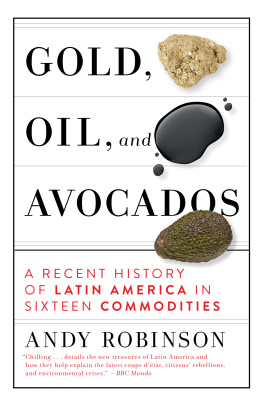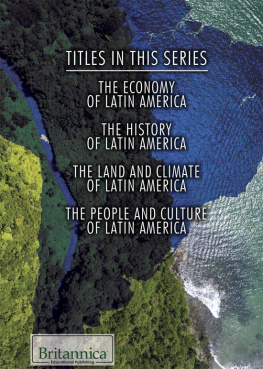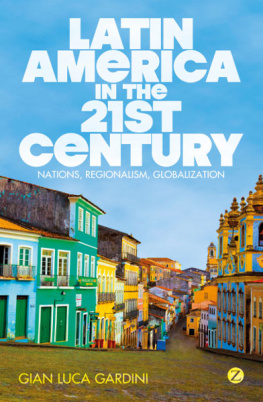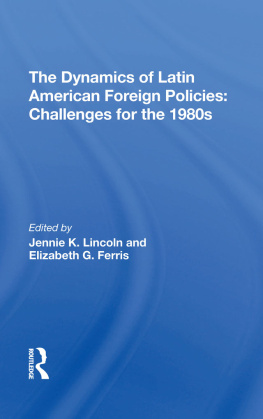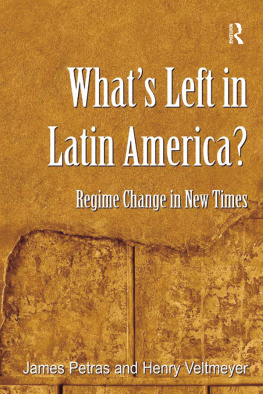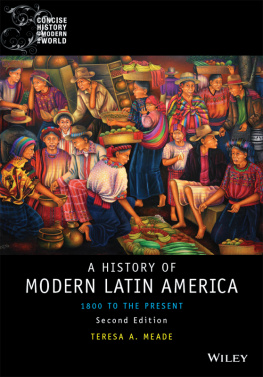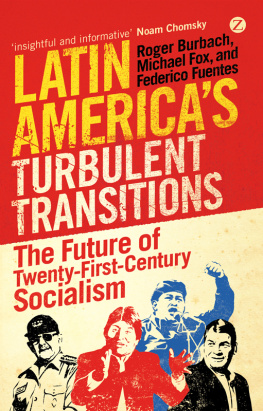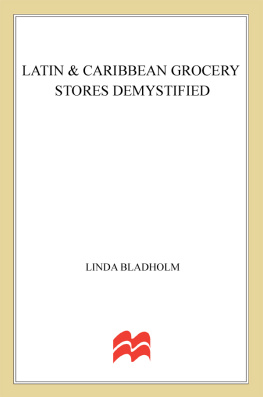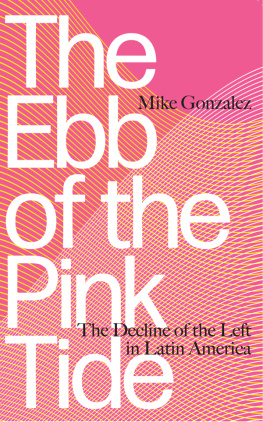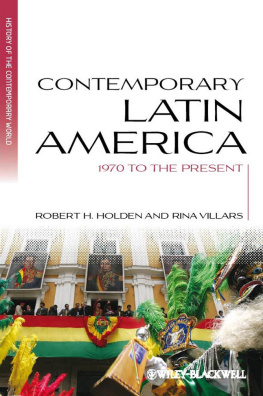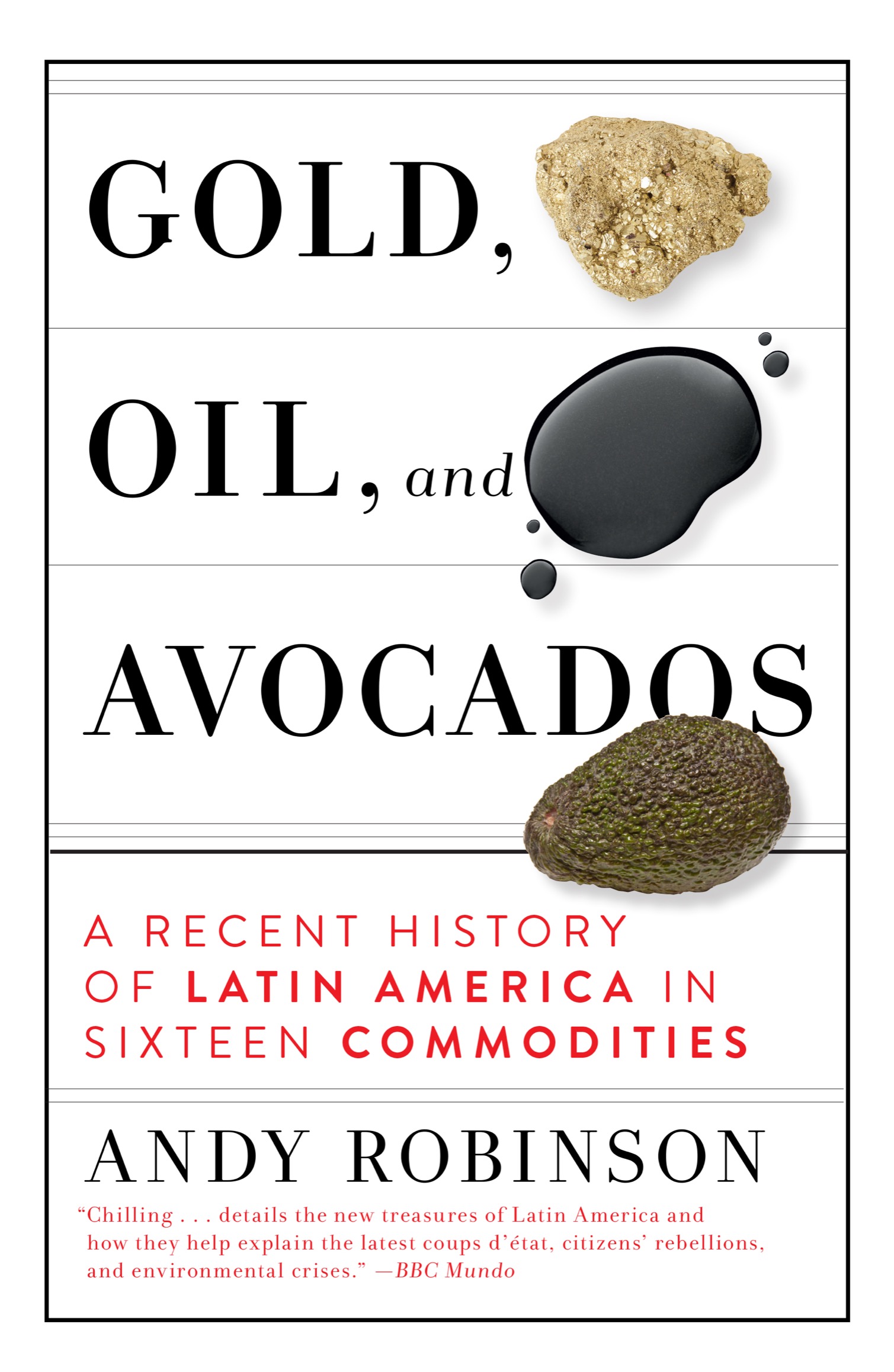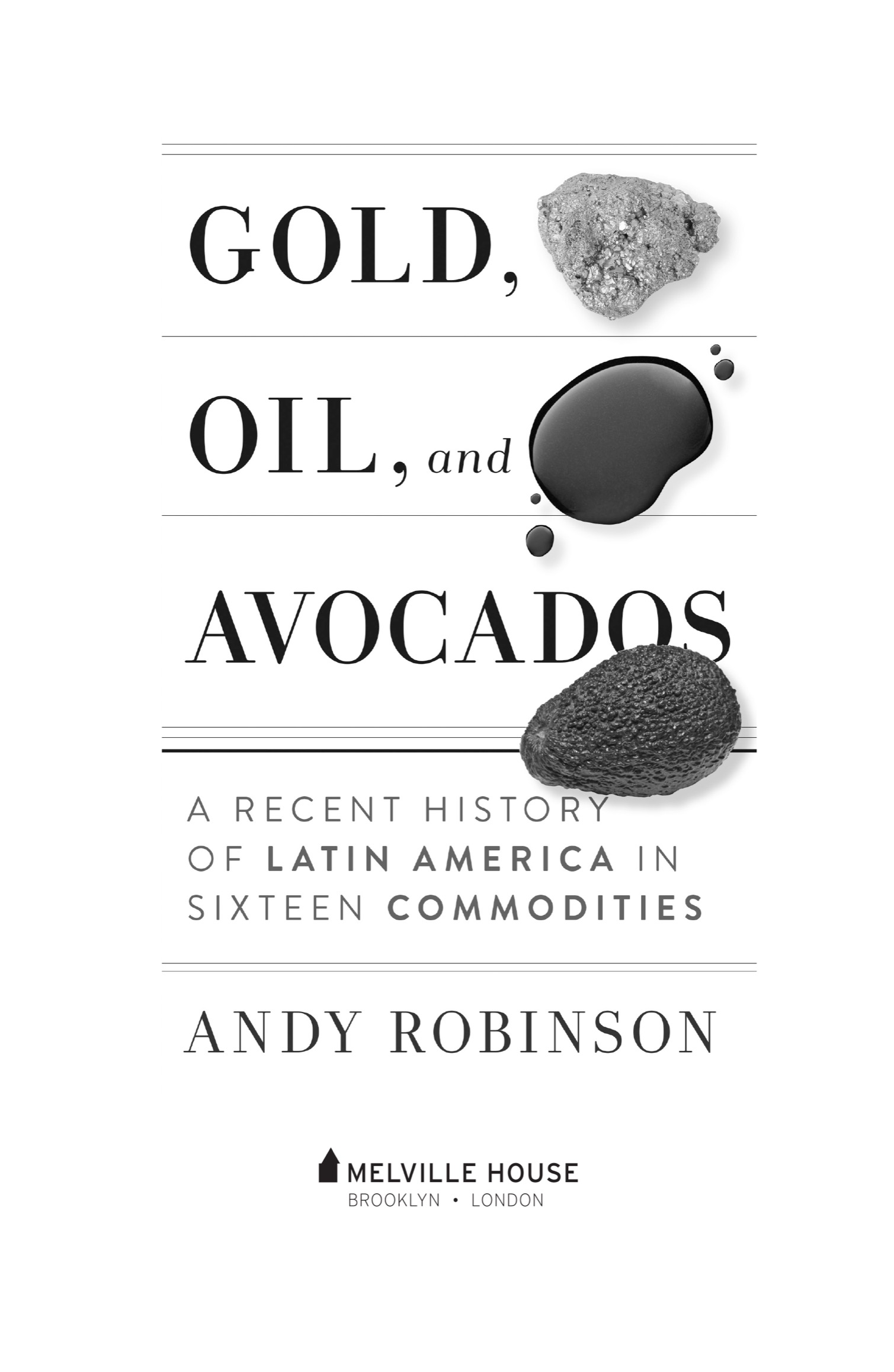This new and revised edition has been prepared especially for English language publication.
In the colonial and neocolonial alchemy, gold changes into scrap metal and food into poison.
CONTENTS
Introduction
Itaituba, the Battle for the Future
Chapter One
Iron (Minas Gerais, Brazil)
The Brutal Force
Chapter Two
Niobium (Brazil)
The Fetish of Jair Bolsonaro
Chapter Three
Coltan (Gran Sabana, Venezuela)
The Mines of Nicols Maduro
Chapter Four
Gold (Colombia; Central America; Utah; Nevada)
El Dorado in Salt Lake City
Chapter Five
Diamonds and Emeralds (Diamantina, Brazil)
The Other Side of Paradise
Chapter Six
Bananas (Honduras)
Banana Republic, Twenty-First Century
Chapter Seven
Potatoes (Puno, Peru)
From Chuo to the Potato Chip
Chapter Eight
Copper (Apurmac, Peru; Atacama Desert, Chile)
Two Press Conferences and a Revolution
Chapter Nine
Lithium (Potos, Bolivia)
Coup on the Salt Flat
Chapter Ten
Quinoa (Uyuni, Bolivia)
The Rise and Fall of the Miracle Grain
Chapter Eleven
Silver (San Luis Potos, Mexico)
Racers and the Fourth Transformation
Chapter Twelve
Avocados (Michoacn, Mexico)
Hot Dog with Guacamole
Chapter Thirteen
Soy (Par, Brazil; Bahia, Brazil)
Cargill and the War of the End of the Planet
Chapter Fourteen
Beef (Par, Brazil)
The Capital of the Ox
Chapter Fifteen
Oil (Venezuela; Brazil; Mexico)
Petrosocialism and Counterattack
Chapter Sixteen
Hydro (Par, Brazil)
The Maps of the Munduruku
INTRODUCTION
Itaituba, the Battle for the Future
How would Eduardo Galeano write his classic Open Veins of Latin America today? It seemed the right question to ask during a visit to the boomtown of Itaituba on the banks of the Tapajos River in the Brazilian Amazon. The Workers Party was still in power and I had traveled from Rio de Janeiro to assess whether the controversial Growth Acceleration Program championed by President Dilma Rousseff would prove compatible with the survival of the planetary lung and, more immediately, of the thirteen thousand citizens of the Munduruku indigenous community who lived along the banks of the Tapajos. Under the scheme, the Mundurukus millenary lands would be flooded by the gigantic hydroelectric project of So Luiz do Tapajos, planned to generate electricity for the new Amazonian metropolises as well as the megamines and soybean plants.
After a thirteen-hour passage upriver aboard a Fitzcarraldian ferry boat from Santarm, the jungle capital, itself a seven-hour flight from Rio, the last thing I expected to encounter were five Jet Skis equipped with 2,600cc engines. But there they were, zigzagging before a wake of white foam. After millennia of silence, broken only by the shrieks, howls, and buzzing of the deep jungle, perhaps Itaituba felt the need for deafening noise and breakneck speed. Jet Skis are all the rage here. You will see fifteen or twenty a weekend; mine reaches one hundred and five miles per hour, said Bruno, eighteen years old, as he coupled his Yamaha to a 4x4. While we spoke, a riverboat plying the Tapajos from Santarm two hundred miles downstream docked and unloaded five quad-motor tractors, ideal for racing along the newly opened jungle trails.
Bruno explained he had bought his Jet Ski for twenty thousand reais (more than $7,000) with his wages as a construction worker paving the Trans-Amazonian Highway that would bring forth a new phase of uncontrolled deforestation. But there were other ways to make a quick buck in Itaituba. Teeming with banks and gold merchantsand a population that was growing explosivelythe frontier city was the center of all extractive activities in the western Amazon state of Par (most of them illegal) from panning for precious metals and stones to clearing the rain forest for timber. Not to mention the soybeans loaded at the terminal built by the multinational agribusiness corporation Bunge. Another boost to the economy was expected with the construction of the megadam thirty miles upstream in Munduruku territory and the new waterways for the transport of soy, minerals, and timber.
Has Itaituba changed much in recent years? I asked Bruno, the son of impoverished migrants from the outskirts of Braslia who had chanced the move to the Amazon thirty years earlier in search of wealth or at least two plates of beans and yuca a day. He looked to one side and pointed to seven black vulturesurub in Portugueseperched on a pile of garbage, wings spread like funeral curtains: You think there are a lot of urubus over there, right? Well, in the old days there were many more.
The scene in Itaituba seemed to illustrate the contradictions of the Latin American lefts economic development project. Taking power at the beginning of the new century, the so-called pink-tide progressive governments rightly perceived a crucial need to accelerate growth in order to eliminate poverty and extreme inequality, burdens that the region had shouldered from the first era of mass enslavement, in the gold and silver mines in the sixteenth century, and the second, that arrived in chains from Africa to toil in the plantations of the first commodity cropssugar, bananas, coffeefor the new global market. Brazils former president Luiz Incio Lula da Silva, or, as he is affectionately known, Lula, was justifiably proud of lifting forty-two million previously excluded Brazilians into what he called the new middle class.
Achieving and maintaining the support of Latin American workers like Bruno required constant improvements in the populations material well-being, and the fastest way to achieve this without triggering an external debt crisis was through exports of raw materialsminerals, monoculture cash crops like soy, and meatand the foreign exchange that these would generate. In a time of diminishing resources and the rise of China as a superpower, raw materials were valued as never before and the temptation to rev up the extraction machine was difficult to resist. A race for ever-more-scarce resources in a quasicold war between China and the United States made the model even more seductive.
But how could the strategy prosper without committing the same atrocities as in the classic epochs of the plunder of Latin America, captured so vividly in Galeanos great book? Environmental destruction and accelerating deforestation in the Amazon, after all, was not only hastening planetary climate change and bringing catastrophic droughts to the Andes and Central America. It had also raised the risk of killer pandemics as the slaughterhouses and feeding lots of the new Latin American meatpacking industry became the biggest in the world and the pathogens of wildest nature were released into the slums of jungle metropolises. Burgeoning Amazon towns like Itaituba, with poor sanitation and chaotic urbanization, had already become breeding grounds for Zika, the mosquito-borne virus that threatened to spread throughout Brazil, terrifying athletes due to perform at the 2016 Rio Olympics.

